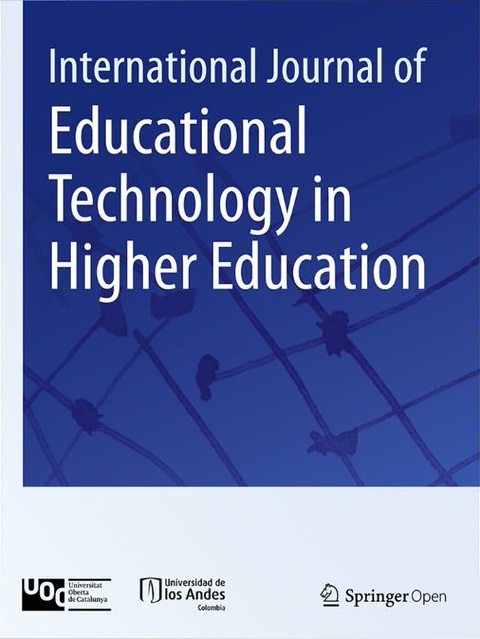The Effects of a Constructively Aligned Virtual Reality Setting on Professionals' Knowledge, Motivation and Perceptions
IF 16.7
1区 教育学
Q1 EDUCATION & EDUCATIONAL RESEARCH
International Journal of Educational Technology in Higher Education
Pub Date : 2023-10-23
DOI:10.46328/ijte.462
引用次数: 0
Abstract
Although previous research on Virtual Reality (VR) demonstrated the effects of particular learning environment characteristics on learning, none of these studies constructed their virtual learning environment from a constructive alignment perspective. Therefore, this experimental study aims to investigate the impact of a constructively aligned virtual classroom setting, adopting an Artificial Intelligence (AI) training, on professionals’ knowledge on AI. This experimental condition was compared with a control condition, consisting of a similar constructively aligned AI-training within a traditional face-to-face setting. Learning outcomes were measured using a pre-test post-test validated multiple-choice test. Additionally, motivation and perceptions, which are considered as crucial intermediate variables, were assessed using questionnaires. Results revealed significant improvements in learning from pre-test to post-test with no statistical difference between the conditions. Following the principle of constructive alignment, professionals perceived the VR classroom environment as motivating as the traditional setting. As a result, professionals perceived the VR classroom setting to the same extent as the traditional learning environment. These findings reveal that improvements in learning outcomes of professionals can be realized if environments are designed based on the principle of constructive alignment irrespective of the VR or traditional settings.建设性对齐的虚拟现实环境对专业人员知识、动机和感知的影响
虽然以往的研究表明了特定的学习环境特征对学习的影响,但这些研究都没有从建设性对齐的角度构建虚拟学习环境。因此,本实验研究旨在探讨采用人工智能(AI)培训的建设性对齐虚拟教室设置对专业人员人工智能知识的影响。该实验条件与控制条件进行了比较,控制条件包括在传统的面对面设置中进行类似的建设性对齐人工智能训练。学习成果采用测试前、测试后验证的多项选择测验进行测量。此外,动机和观念,这被认为是关键的中间变量,评估使用问卷。结果显示,从测试前到测试后,学习能力有显著提高,两种情况之间没有统计学差异。遵循建设性对齐原则,专业人士认为VR教室环境与传统环境一样具有激励作用。因此,专业人士对VR课堂环境的感知程度与传统学习环境相同。这些发现表明,如果环境是基于建设性对齐原则设计的,无论虚拟现实还是传统设置,专业人员的学习成果都可以得到改善。
本文章由计算机程序翻译,如有差异,请以英文原文为准。
求助全文
约1分钟内获得全文
求助全文
来源期刊
CiteScore
19.30
自引率
4.70%
发文量
59
审稿时长
76.7 days
期刊介绍:
This journal seeks to foster the sharing of critical scholarly works and information exchange across diverse cultural perspectives in the fields of technology-enhanced and digital learning in higher education. It aims to advance scientific knowledge on the human and personal aspects of technology use in higher education, while keeping readers informed about the latest developments in applying digital technologies to learning, training, research, and management.

 求助内容:
求助内容: 应助结果提醒方式:
应助结果提醒方式:


